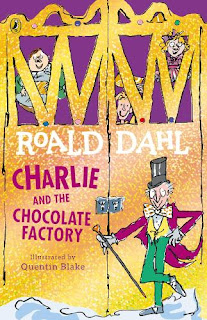Enid Blyton's reputation has not declined to that extent, but there has been a price to pay. Because, for decades, her books have been edited and re-edited so that they can still be sold. So much so that these days you have no idea how many of the words in a book with her name on the cover she actually wrote.
I don't like this process: I would rather publishers allowed books go out of print gracefully than mucked them about in this fashion. But it is inevitable, because publishers and writers' estates aren't going to slaughter a cash cow.
So if you want to understand why Roald Dahl's books are being re-edited, don't hunt for woke snowflakes but follow the money and read The Hollywood Reporter:
Netflix has been in the Dahl business for the past three years, having paid a reported $1 billion to acquire rights for animated series and specials based on 16 of Dahl’s stories, including Charlie and the Great Glass Elevator, The BFG, The Twits, George’s Marvellous Medicine and The Enormous Crocodile.
And if all that goes ahead there is a lot of money to be made from tie-in republication of the books. And those books will have to be acceptable to today's trade and today's buyers.
Dahl was happy to bow to commercial forces during his own lifetime, When the success of the film of Charlie and the Chocolate Factory threw new light on the book, he made significant changes to it.
As the Telegraph article which has started this row off admits:
This is not the first time his books have changed to reflect contemporary mores, or around Hollywood interest.
In the first edition of Charlie and the Chocolate Factory (1964), the Oompa-Loompas were black pygmies, enslaved by Willy Wonka from "the deepest and darkest part of the African jungle" and paid in cocoa beans. Dahl rewrote the characters in the late 1960s to "de-Negro" them, in his words.
For Mel Stuart's 1971 film starring Gene Wilder, the Oompas became green-haired, orange-skinned figures. By a 1973 edition of the book, they had become "little fantasy creatures".
That article is behind the paper's paywall, but that quote begins an excellent Twitter thread on the subject by Tabitha McIntosh. I encourage you to read it.

No comments:
Post a Comment